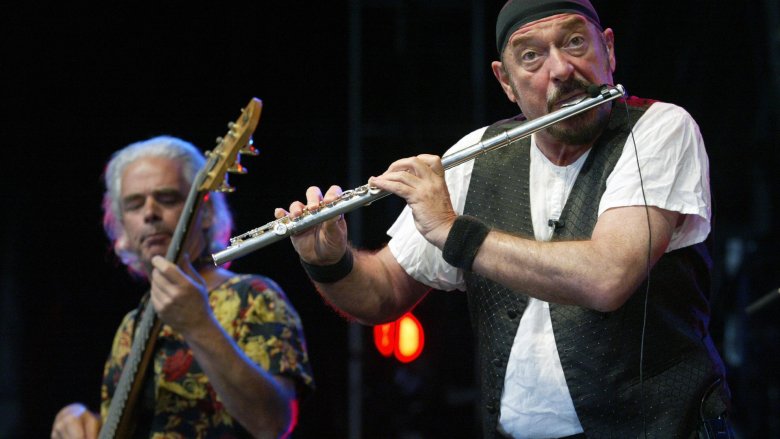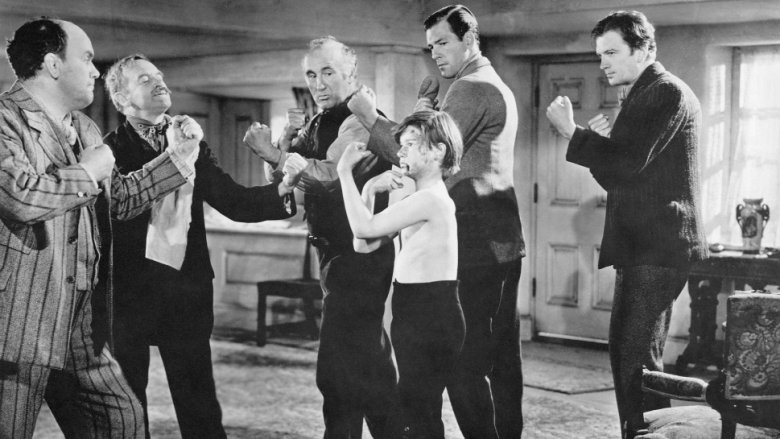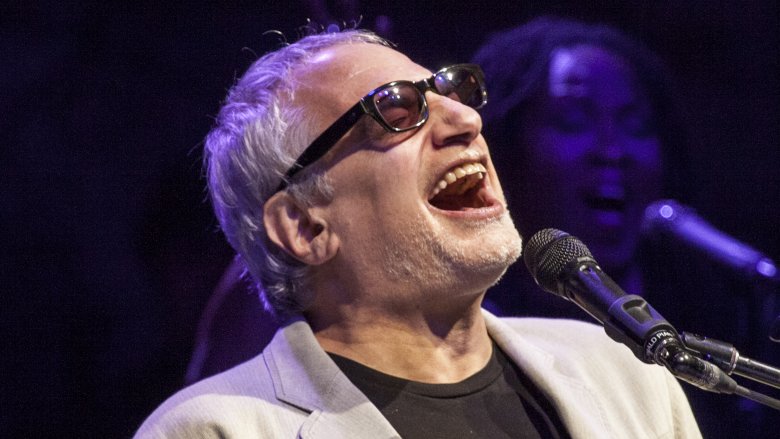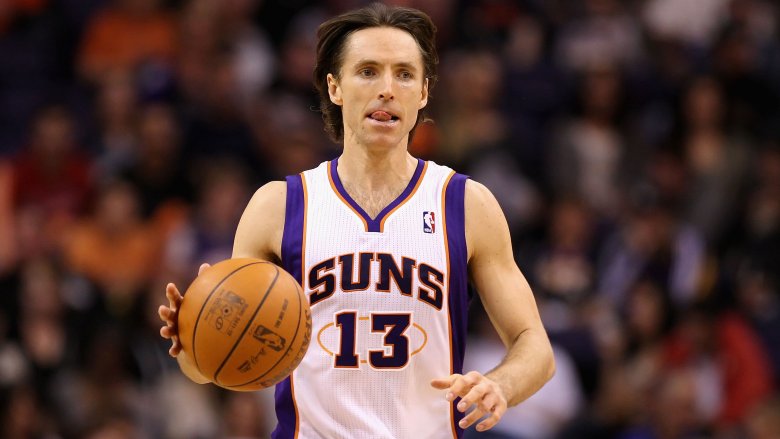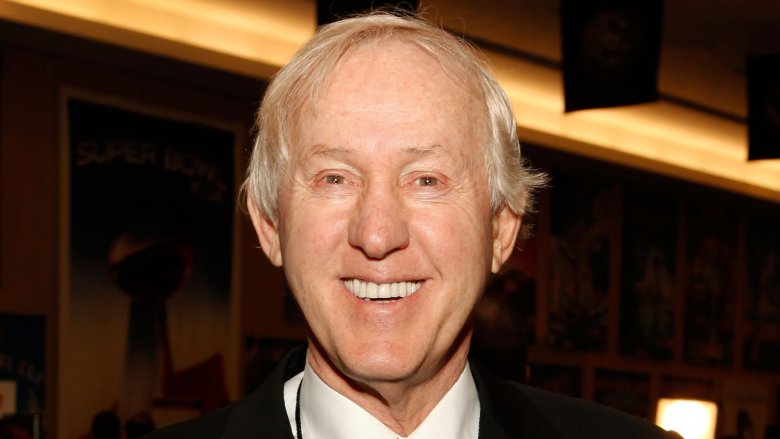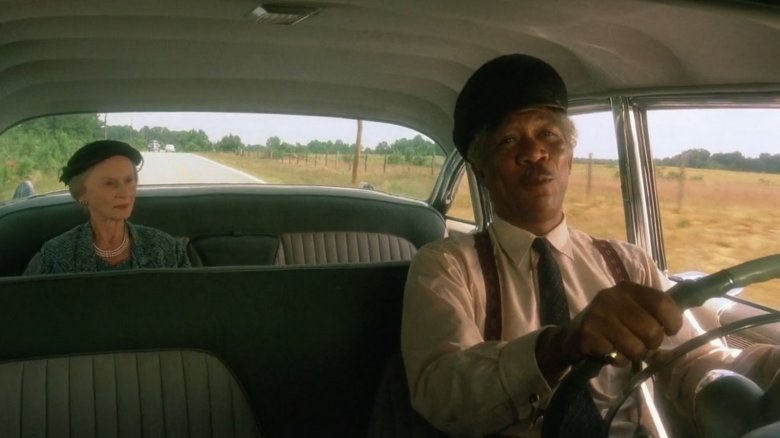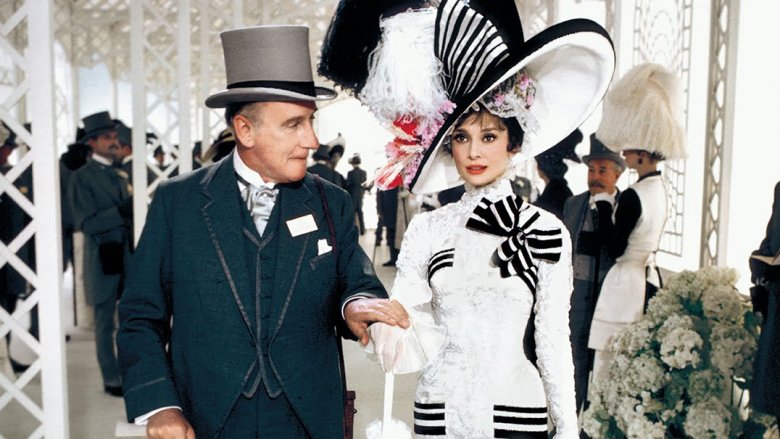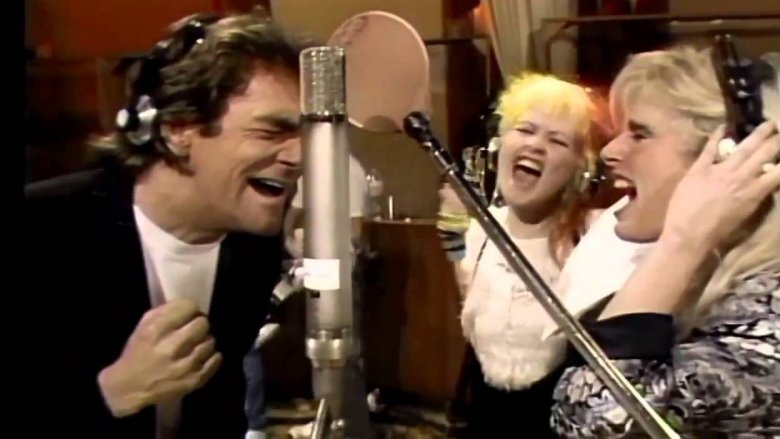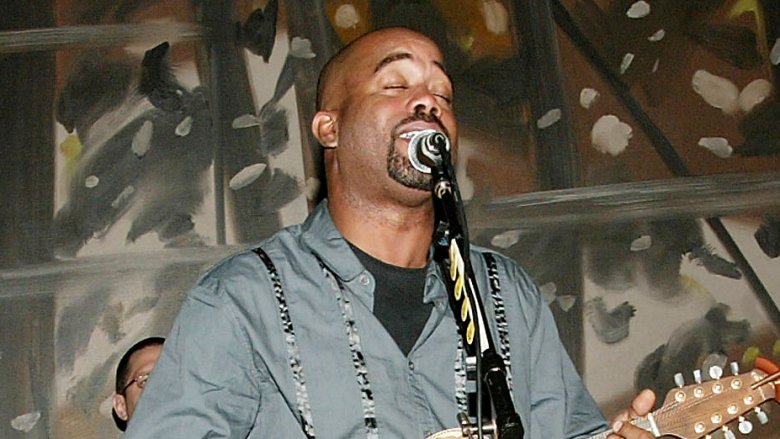Prestigious Awards Given To Undeserving Winners
If you win a major award, typically it means you're the best of the best at what you do. Other times, you win because whoever voted for you wasn't right in the head that day. That's the only way to explain how these incredibly prestigious awards got doled out to incredibly undeserving winners.
1989: Jethro Tull wins Best Hard Rock / Metal Grammy over Metallica and AC/DC
Hard rock and heavy metal have been around for years, but it wasn't until 1988 that the Grammys got around to honoring them with a "Hard Rock/Metal" award. They had a fine list of nominees: Metallica, AC/DC, Jane's Addiction, Iggy Pop ... and Jethro Tull. Including the band best known for flute solos seemed like the Grammys' way of saying "we needed five, so sue us."
It seemed like the award was Metallica's, since their ...And Justice For All album was red-hot, and they had just blown the Grammy crowd away with a blistering rendition of "One." And then ... Jethro Tull, the cleanest, gentlest nominee of the bunch, won. It's almost like someone tricked the voters and told them "Aqualung" was on the new album.
The audience immediately reacted negatively, booing and hissing the announcement because why wouldn't they? In an interview with Kerrang Magazine, Tull frontman Ian Anderson admitted even he thought the band would lose, which is why they didn't actually attend. He figured that the voters saw the Tull Grammy as a Lifetime Achievement Award, though ultimately all it did was make them seem old and out-of-touch.
Even the Grammy website throws shade at this decision, calling Tull "a fine group of longstanding musicians, but arguably the least hard or metal of the nominees." They then note that the very next year, the Grammys split Hard Rock and Metal into their own categories. Metallica then won rather easily, despite "One" containing no flutes whatsoever — until the S&M version anyway.
1941: How Green Was My Valley beats Citizen Kane for Best Picture
Even without looking at a list of Best Picture winners throughout the Academy Awards' history, you'd probably guess Citizen Kane was one of them. But you'd be wrong, because in 1941, Kane lost to a movie called How Green Was My Valley.
It's not that Valley is a terrible movie — it's got a 90 percent rating on Rotten Tomatoes, so the trials and tribulations of a Welsh mining family clearly resonated with people. But when pit against Kane for Best Picture, it absolutely should've been burned like Rosebud. Yet it won the top award — and you can probably blame newspaper mogul William Randolph Hearst for that.
As told in the PBS documentary The Battle Over Citizen Kane (and recapped by the LA Times), Charles Foster Kane was a thinly veiled stand-in for Hearst, who did not have a sense of humor about the cinematic critique. Enraged by the film's audacity to portray Kane (and thus, Hearst) as a ruthless, power-hungry egomaniac, Hearst set out to squash the film. He banned it from being mentioned in his newspapers, and even had his reporters bury Orson Welles with articles about his personal life, his politics, and anything else they could demonize the man with. He even got the FBI to open a file on poor Welles. Hearst was the worst.
What's more, Hearst used his influence to stop many theaters from showing Citizen Kane under threat of lawsuits. Most likely, the Academy felt the same pressure, and gave what should've been Citizen Kane's Oscar to a feel-good film like How Green Was My Valley, one that couldn't possibly offend anybody. Except, of course, for those offended that one of the best films ever didn't get its due Oscar props.
2001: Steely Dan wins Album Of The Year Grammy
In 2001, Steely Dan released a new album, Two Against Nature. It came and went — good luck finding any classic rock stations that play "Cousin Dupree" over "Reelin' In The Years." But for whatever reason, it got nominated for 2001's Album of the Year Grammy. It's competition? Albums by Eminem, Radiohead, Beck, and Paul Simon. The first three in particular were hot as could be in 2001, particularly Eminem's Marshall Mathers LP, which was both super-popular and super-controversial.
But, as the Grammys are wont to do, they voted for what was super-safe, going with the milquetoast Steely Dan album over any of the others. After all, they were getting enough flack, according to Rolling Stone, for even nominating Eminem in the first place. People were mad at Marshall Mathers' seemingly endless profanity and supposedly homophobic and sexist lyrics. So, rather than embrace the controversy or at least honor Radiohead or Beck, they went in the complete and opposite direction, honoring Steely Dan. In 2001.
Album of the Year wasn't the only time the 2001 Grammy voters proved they learned nothing from the time they decided Jethro Tull was metal. Steely Dan also won that year for Best Pop Vocal Album, meaning a group of '70s soft rockers were suddenly poppier than N'Sync and Christina Aguilera. As MTV reported, even Walter Becker of Dan seemed weirded out by this one. As he quipped, "I thought that was weird ... Maybe we're in the wrong category or something." You think?
2004-2006: Steve Nash wins NBA MVP over Shaq and LeBron
Steve Nash was a damn good NBA player, but his winning two MVP awards in a row makes virtually no sense.
In the 2004-2005 season, Nash won the MVP over Shaquille O'Neal, who had just gotten to the Miami Heat and helped the team earn the best record in their conference. He also brought them to the conference finals, where they lost in seven games. Meanwhile, Nash did roughly the same thing with his Phoenix Suns, bringing them from 29 wins the year prior to 62 wins, and bringing his team to their conference finals, where they lost in five games. The voting was super-close — according to Basketball-Reference.com, Nash just edged Shaq 1066-1032. Clearly, a case could be made for either man.
But it's Nash winning his second MVP a year later that officially made people wonder why the voters loved this guy so much. That year, he guided his Suns to another first-place record and another deep playoff run, so he didn't exactly do the worst-to-first thing that's a great MVP argument. Plus, the voting was less close this time around, with Nash getting 924 points and the second-place guy, LeBron James, getting 688. LeBron was, at the time, about the only good player on the Cleveland Cavaliers, and he had just guided them to their first playoff run since 1998. It's unclear how that doesn't scream "MVP" to basically everyone.
Meanwhile, you've got Shaq saying, in an interview with Sports Illustrated, that he deserved to win not just one of Nash's MVP awards, but both of them. On Nash's end, he was quoted by CNN in 2017 as saying "the MVP is such a subjective thing that it almost says more about the voter than it does about the players." That might just be his way of saying that, in the mid-2000s, voter subjectivity was off the mark.
1975: Fran Tarkenton wins NFL MVP over O.J. Simpson
Pretend for a second OJ Simpson played football, filmed The Naked Gun movies, and did absolutely nothing after that. That way, you can more easily defend him for losing the 1975 NFL MVP to some guy named Fran.
Fran Tarkenton was the Minnesota Vikings' quarterback in 1975, and he was really good at his job — he threw for over 47,000 yards and over 340 touchdowns, according to Pro Football Reference. And in 1975 his Vikings went 12-2 — not bad at all. But the Vikings were a good team overall, and an argument could be made that the team would've earned a fine record with or without him.
Meanwhile, OJ was the year's rushing yards champion, with 1817 yards, and he brought his Buffalo Bills to an 8-6 record, a number they almost certainly wouldn't have approached without him. If the MVP is about who adds value to their team, the guy whose team would likely crumble without him should probably get the nod almost every time.
There's no reason OJ shouldn't have gotten honored that year ... unless the MVP voters could see the future and wanted to steer as far clear of him as humanly possible.
1989: Driving Miss Daisy wins Best Picture Oscar
More than 25 years after Driving Miss Daisy became a Best Picture Oscar winner, you'd be hard-pressed to find anyone who actually likes it. More likely, you'll hear the title used in a derogatory way, like if you're driving Miss Daisy around, you're probably someone's servant. And yet, this film won the top Oscar in 1990, a decision that's aged about as well as hair metal.
Up against nominated films like Dead Poets Society and Field of Dreams, Daisy probably shouldn't have had much of a chance of winning. But it's the 1989 film that wasn't even nominated — Spike Lee's provocative Do the Right Thing — that got the biggest shaft. Even Kim Basinger proclaimed, while on stage, "The best film of the year is not even nominated, and it's Do the Right Thing" (as recapped in a New York Magazine interview with Lee.)
Driving Miss Daisy, meanwhile, seemed like a step backwards — as the New York Times theorized, "it bears a subtext that summons up a longing for the good old days before the civil rights movement changed the Old South forever."
In the years since, Morgan Freeman himself has expressed regret about the movie, saying in an interview with Richard Jobson of the Guardian that his role worked to popularize, as he put it, "this wise, old, dignified, black man" that's more special guardian than human. If you're a fan of TVTropes.com, you might be familiar with what he's describing — namely this. It's not a compliment, and if popularizing such a trope is Daisy's legacy, you can see why the Academy should've realized that and given the nod to Kevin Costner's spooky baseball team instead.
1964: My Fair Lady beats Dr. Strangelove and Mary Poppins for Best Picture Oscar
Much like Driving Miss Daisy, My Fair Lady is an Oscar-winner that doesn't really stand the test of time. And yet it won Best Picture, despite arguably having tougher competition than Daisy – nominees like Mary Poppins (whose songs are now stuck in your head, like it or not) and Dr. Strangelove or: How I Learned to Stop Worrying and Love the Bomb, a movie that's almost as funny as its own title.
My Fair Lady is about an upper-class guy who takes a bet that he can take a Cockney peasant girl, teach her the Queen's English, and make her one of them. (This includes making her wear just the stupidest hat imaginable, somehow.) Ever seen She's All That? It's the same thing, but somehow this one won Best Picture. It's got a 96% rating on Rotten Tomatoes, but it's real hard to justify its award when put up against a classic like Mary Poppins, and a genius dark comedy like Dr. Strangelove that resonates harshly in both its time and ours.
And even without that kind of competition, My Fair Lady's premise simply doesn't look as good today. It's all about a man manipulating a woman so she's more acceptable to him. That was starting to gross people out in the '90s with She's All That, and it definitely hasn't aged well today. Meanwhile, Poppins and Strangelove still work (albeit in very different ways), and either one with a Best Picture Oscar on their resume would've made all the sense in the world.
1986: We Are The World wins Record the Year Grammy
The "all-star charity single" genre hasn't aged well — about the only time you see it now is when people like Weird Al make fun of the idea. So it's utterly baffling to look at 1986 and see that the Grammys gave USA For Africa's "We Are The World" their Record of the Year award.
By all accounts, "We Are The World" is pure schlock. Even the artists who performed on it think so — Billy Joel was interviewed by Rolling Stone in 2005 and recalled, "I remember most of us who were there didn't like the song, but nobody would say so. I think Cyndi Lauper leaned over to me and said, 'It sounds like a Pepsi commercial.' And I didn't disagree." Somehow, the Pepsi commercial got honored with a Grammy, which is even more baffling when you consider the four unabashed classics it beat out: Dire Straits' "Money For Nothing," Don Henley's "The Boys Of Summer," Huey Lewis & The News' "The Power Of Love," and Bruce Springsteen's "Born In The USA."
"We Are The World" beat all those, which simply boggles the mind. You can turn on the radio just about any time of day and listen to one of those iconic bits of rock. "Power of Love" in particular is one of the most beloved soundtrack songs of all time, thanks to Back To the Future. When's the last time you heard "We Are The World" on the radio, or anywhere outside of VH1's I Love The '80s, for that matter? Simply put, the Grammy committee voted for sentimentality over substance, and now look incredibly silly — though they're used to that.
1996: Hootie and the Blowfish win Best New Artist Grammy
Speaking of silly, let's talk about the time the Grammys gave Hootie and the Blowfish a Best New Artist Grammy. When's the last time you heard of Hootie and the Blowfish without someone making fun of them? That's pretty much their lot in life, so it's baffling in hindsight that they got the nod.
It's not like 1996 yielded a weak crop of new artists. Alanis Morissette and Shania Twain were also nominated for the award, and it's safe to say both of them recovered from the loss rather well. Their careers are still going strong and they're still respected artists. Hootie, meanwhile, never really capitalized on their win, releasing a follow-up album, Fairweather Johnson, which sold well, but ultimately exposed their many limitations as a mediocre band. Their following three albums went nowhere, and they've done little as a band since. Singer Darius Rucker has a country career, though chances are you only know about it because of that embarrassing Burger King commercial he did.
There's a mythos to the Best New Artist Grammy, in that whoever wins it has their career ruined. Taffy Nivert of the Starlight Vocal band said as much during a spot on VH1's 100 Greatest One Hit Wonders show: "We got two of the five Grammys [and] one was Best New Artist ... so that was basically the kiss of death and I feel sorry for everyone who's gotten it since." Whether an actual "curse" exists or not is questionable, but if there is, Hootie most certainly fell to it.
2006: Peyton Manning wins Super Bowl MVP (despite mediocre-at-best numbers)
Peyton Manning is, without question, one of the best players in NFL history. That said, when he won his first Super Bowl in 2006, awarding him the MVP was just about the worst possible decision, one made almost certainly because "he's Peyton Manning."
In early 2017, ESPN's Mike Sando ranked all the NFL MVPs — Manning's Super Bowl XLI nod ranked 41st out of 50. But since everyone below him isn't a transcendent icon of the game, his run especially looks bad. While his Indianapolis Colts won, 29-17, it was almost in spite of Manning. His numbers were decidedly mediocre (247 yards, one TD, one INT), and his defense basically won the game for him. Manning's one touchdown happened six minutes in, and the rest of the game was the defense stuffing Chicago's attempts to score. The Indy defense had just as many touchdowns on interceptions as Manning did, period. Three field goals from Adam Vinatieri, one of the best kickers in league history, didn't hurt either.
This ultimately seems like one of those awards they gave a legendary, beloved figure because he is legendary and beloved. He'd just won his first ring, so why not heap honors on him? That doesn't change how one of his defensemen deserved the honor several times more than he did.
